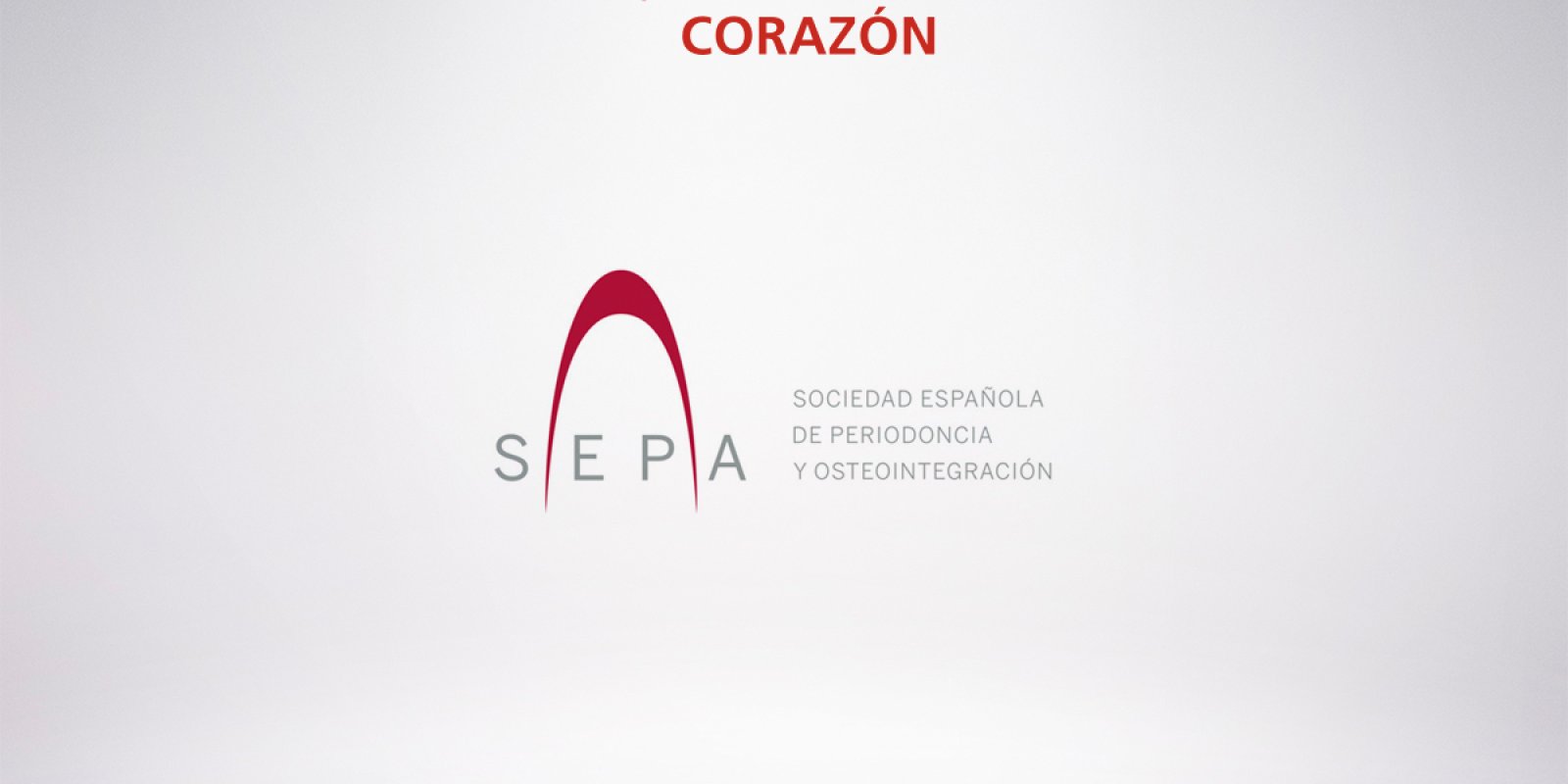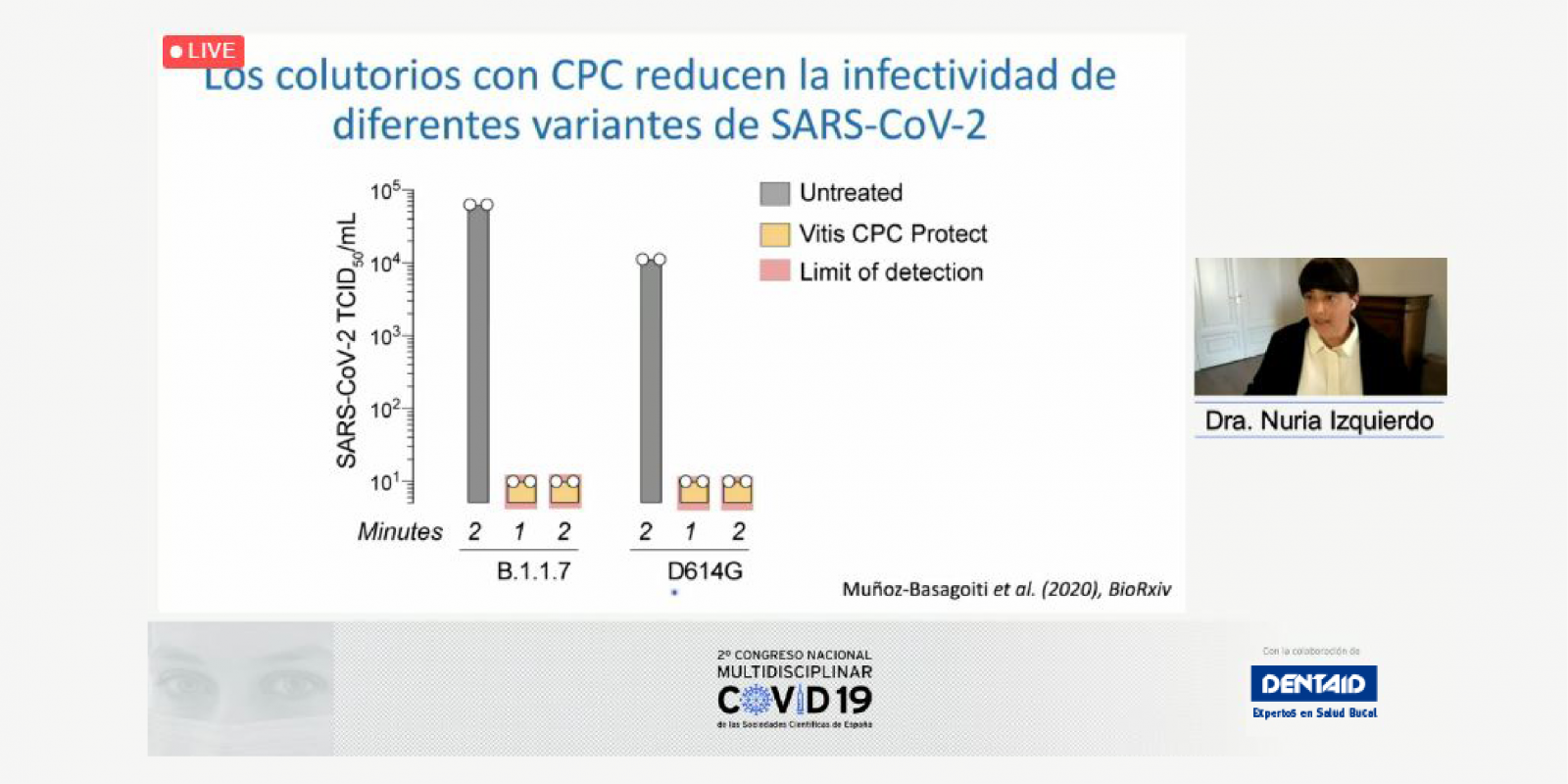DENTAID Oral Health
News for pharmacy professionals
COLLABORATION BETWEEN CARDIOLOGISTS AND DENTISTS, A QUESTION OF HEALTH (II)
10 Jul 2019

Recommendations for patients on antiplatelet therapy.
It is essential to analyse and refresh cardiologists’ and dentists’ understanding of the influence of some cardiovascular therapies commonly used in the dental practice, such as antiplatelet or anticoagulant medications.
At present, distinction is made between conventional antiplatelets, such as acetylsalicylic acid or clopidogrel, and the newer ones like Prasugrel and Ticagrelor. It is also important to distinguish between conventional anticoagulants, such as vitamin K antagonists: sinthrome and warfarin, and new oral direct anticoagulants, including dabigatran, rivaroxaban, apixaban and edoxaban.
In the case of antiplatelet treatment in patients undergoing dental procedures, Dr Manuel Anguita considers it a priority to “have a clear idea of the fundamental concepts.” Thus, for example, in the case of patients who are undergoing antiplatelet therapy with only one drug, there is no doubt: the vast majority of dental procedures may be carried out while maintaining antiplatelet treatment—generally, acetylsalicylic acid (ASA) or clopidogrel.
Greater difficulties and doubts arise in those patients undergoing dual antiplatelet therapy with both ASA and clopidogrel; in these situations Dr Anguita says “the risk of haemorrhage increases slightly, but it is not usually necessary to withdraw either of these drugs before carrying out any routine dental procedures such as tooth extraction, although if one of the antiplatelets used is the more potent prasugrel or ticagrelor, these should be discontinued.”
What about anticoagulants?
Regarding patients undergoing anticoagulant therapy who are due to undergo a dental procedure, the current medical literature indicates that in those who are being treated with a vitamin K antagonist and show stable anticoagulation—i.e. with an INR in the range of 2.0-3.0—dental procedures such as tooth extraction can be safely performed with no significant increase in the risk of bleeding.
The situation is different with Novel Oral Anti-Coagulants (NOACs), which have an immediate effect and thus exert their anticoagulant effect within a few hours of beginning to be taken, and which similarly cancel out their full effect just 12-36 hours after discontinuing administration; as per the president of the Spanish Society of Cardiology, this “allows them to be discontinued temporarily, for a few hours, when the patient needs to undergo a complex dental procedure, and then resume the treatment almost immediately.”
As an example, Dr Anguita recommends that for single tooth extractions, and if the risk of haemorrhaging is low, discontinuation of anticoagulant therapy is not necessary—at most, the dose may be suspended prior to the procedure; if the risk of bleeding is moderate, the recommendation is to suspend the anticoagulant 12-24 hours before dental surgery. Depending on whether thrombotic risk is high or low, a more specific assessment of each case should be made. And in patients with impaired renal function, special caution should be exercised with the use of dabigatran, discontinuation of which is advisable 3-4 days before the dental procedure —necessarily applying bridging therapy with heparin.
In short, as summarised by Dr Manuel Anguita, “in most situations you can perform dental procedures without discontinuing simple ASA antiplatelet or anticoagulation therapy —although in the case of implant treatment, there are doubts about this. There may also be doubts as to whether or not to continue with the treatment in patients undergoing dual-antiplatelet therapy, especially if this includes the use of prasugrel or ticagrelor. In this respect, adds the expert, “it is up to the dentist to decide whether to perform the dental procedure with or without antiplatelets and/or Direct Oral Anti-Coagulants (DOACs), while the role of the cardiologist is to assess the thromboembolic risk of discontinuing use of these drugs.”
Dr Manuel Anguita points out another aspect to consider, which is that “thromboembolic risk, and thus the decision on whether to discontinue treatment, depends on the clinical context.” Specifically, in patients with prosthetic heart valves undergoing treatment with Vitamin K Antagonists (VKAs), bridging therapy with low molecular weight heparins is advisable; In patients with non-valvular atrial fibrillation (AF) being treated with VKAs, bridging therapy is also recommended, although this is not necessary if treatment is with DOACs. In this case it is only necessary to discontinue one or two doses prior to procedure; in cases of stable chronic coronary disease or in patients with stents implanted within the last twelve months, discontinuation of antiplatelets is required 5-7 days prior (low risk); and in those who have suffered acute coronary syndrome recently or who have had a stent implanted in recent weeks, it is advisable dual-antiplatelet treatment be maintained between 1 and 12 months depending on the type of stent and the thrombotic risk, and/or dental procedure might be delayed between 3 and 12 months, again depending on the patient's thrombotic risk.
Prophylaxis for endocarditis
Another clinical issue cardiologists and dentists often share is the concern for the risk of infectious endocarditis, despite it being a very rare disorder.
There is a large number of documented cases of association between dental procedures and the development of infectious endocarditis; in some cases, there is even a time relationship between the dental intervention and the appearance of endocarditis symptoms. Taking this factor into account and given the high morbidity and mortality of this disorder, with mortality rates of 20-30%, there is currently a debate on whether to perform prophylaxis in the dental clinic for infectious endocarditis in cases of patients with heart disease predisposing this complication.
Dr Manuel Anguita is in favour of this preventive treatment in high-risk cases, as recommended in European and American clinical practice guidelines on endocarditis “since there is solid evidence that dental bacteraemia can cause endocarditis; In addition, it is known that the viridans group of streptococci is part of the normal flora of the oral cavity; Furthermore, these microorganisms are sensitive to antibiotics usually recommended for prophylaxis, and the risk of side effects associated with antibiotics is very low.” The latest guidelines of the European Society of Cardiology only recommend prophylaxis for endocarditis in dental procedures with risk of bleeding of the gums or in apical manipulation carried out in very high-risk patients—those with valve prostheses, those with a history of endocarditis, or those with complex congenital heart disease. Among the arguments defending the more conservative position, the American Heart Association (AHA) indicates that proper oral hygiene is more important than antibiotic prophylaxis in reducing the risk for developing infectious endocarditis.
RELATED ARTICLES

07 Oct 2021
Warding off the smoke from the dental clinic
Kicking the smoking habit is the best thing a smoker can do for their present and future health, gaining in quantity and quality of life. The task is…

21 May 2021
Deciphering the role of oral health and hygiene during COVID-19
The mouth is one of the main paths of entry into the body for many microorganisms that can multiply and cause infections in both the mouth itself and…

12 Apr 2021
10 things you need to know about diabetes and periodontitis
It has been found in recent years that the link between periodontitis and diabetes is bidirectional. While diabetes increases the risk of periodontal…
Sign up for the DENTAID Oral Health newsletter
Sign up for the newsletter